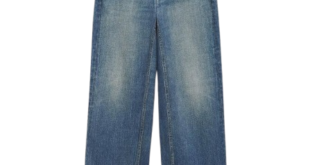What Is Halal Certification? ️
Halal certification is a process that guarantees products and services comply with Islamic dietary laws and guidelines as outlined in the Quran. The word “Halal” means “permissible” in Arabic, signifying that the product is suitable for consumption or use by Muslims. This certification is essential for businesses catering to the global Muslim population, which exceeds 1.9 billion people.
The certification extends beyond food and beverages, covering cosmetics, pharmaceuticals, and even lifestyle services like logistics and tourism. It ensures that every step, from sourcing to production and packaging, adheres to Islamic principles.
Why Is Halal Certification Important?
- Consumer Trust
Halal certification reassures Muslim consumers that the products they purchase align with their faith and ethical beliefs. It builds confidence and loyalty in a brand, fostering trust in its offerings. - Global Market Access ✈️
Businesses with Halal-certified products can tap into the lucrative global Halal market, which is projected to grow exponentially. This certification opens doors to countries with significant Muslim populations, such as Indonesia, Malaysia, and the Middle East. - Ethical and Healthy Choices ❤️
Halal certification often emphasizes cleanliness, safety, and ethical treatment of animals, making it appealing to non-Muslim consumers seeking healthy and ethically sourced products.
The Halal Certification Process
1. Application Submission ✍️
Businesses start by submitting an application to a recognized Halal certification body. The application typically includes details about the product, ingredients, and manufacturing process.
2. Ingredient and Process Review
Certification bodies analyze all ingredients and additives to ensure they meet Halal standards. Non-Halal substances, such as alcohol or pork derivatives, are strictly prohibited.
3. Facility Inspection
A thorough inspection of the manufacturing facility ensures compliance with Halal guidelines. This includes examining cleanliness, equipment, and segregation of Halal and non-Halal products.
4. Approval and Certification ✅
Once the product meets all criteria, the certification body issues a Halal certificate, allowing the business to label its products as Halal. Regular audits are conducted to maintain certification.
Key Halal Certification Bodies Around the World
- Jakim (Malaysia)
Malaysia’s Department of Islamic Development (Jakim) is one of the most respected Halal certification authorities globally. - MUI (Indonesia)
The Indonesian Ulema Council (MUI) plays a pivotal role in certifying products for the world’s largest Muslim-majority country. - HFA (UK)
The Halal Food Authority in the United Kingdom ensures compliance for products entering the European market. - SANHA (South Africa)
The South African National Halal Authority is recognized for its rigorous certification standards.
Challenges in Halal Certification ⚠️
1. Complex Supply Chains
Global supply chains can make it challenging to trace and verify the Halal status of all ingredients.
2. Variability in Standards ⚖️
Different countries and certification bodies may have varying interpretations of Halal standards, creating confusion for businesses.
3. Cost and Time ⏳
The certification process can be costly and time-consuming, especially for small businesses.
The Future of Halal Certification
1. Technological Integration
Blockchain technology and AI are being explored to enhance transparency and traceability in the Halal certification process.
2. Expansion Beyond Food ️
The Halal certification industry is growing to include pharmaceuticals, fashion, and even logistics, reflecting the diverse needs of modern Muslim consumers.
3. Eco-Friendly and Ethical Practices ♻️
With increasing awareness of sustainability, Halal certification bodies are incorporating eco-friendly practices into their standards.
How Businesses Can Benefit From Halal Certification
- Increased Revenue Opportunities
By certifying their products, businesses can attract Muslim consumers and expand their market share. - Enhanced Brand Reputation ⭐
Halal certification signals quality and ethical standards, enhancing a brand’s reputation among consumers worldwide. - Compliance with Regulations
In countries like Saudi Arabia and Malaysia, Halal certification is mandatory for certain product categories, ensuring regulatory compliance.
How to Choose a Halal Certification Body ️♂️
1. Recognized Authority
Select a certification body recognized by major Islamic organizations to ensure credibility.
2. Global Acceptance ✅
Choose a body whose certification is accepted in your target markets to avoid duplication.
3. Transparency and Support
Opt for a certification authority that provides clear guidelines and support throughout the process.
Common Misconceptions About Halal Certification ❌
- “Halal Certification Is Only About Meat”
While Halal certification is essential for meat, it also applies to non-food items like cosmetics and medicines. - “Halal Products Are Only for Muslims” ✅
Many non-Muslims prefer Halal products due to their ethical and hygienic standards. - “Halal Certification Is Expensive”
While there are costs involved, the long-term benefits of accessing new markets often outweigh the expenses.
Conclusion: The Role of Halal Certification in a Globalized World
Halal certification is more than just a label; it represents trust, quality, and ethical commitment. For businesses, it is an opportunity to cater to a diverse and growing consumer base while adhering to stringent ethical and quality standards.
Whether you’re a business owner looking to expand globally or a consumer seeking ethically sourced products, Halal certification ensures that your choices align with both faith and quality. ✅
This article incorporates the essentials of Halal certification and uses emojis to engage readers while maintaining professionalism. Let me know if you’d like to expand or modify any section!
 The Random Collective Where Curiosity Meets Creativity
The Random Collective Where Curiosity Meets Creativity





